HVAC Systems
Revolutionize Your Warmth: Master Heat Pump Troubleshooting

Fed up with feeling cold during the winter season? We have the perfect solution for you.
In our article, ‘Revolutionize Your Warmth: Master Heat Pump Troubleshooting,’ we’ll show you how to take control of your own comfort. By understanding the basics and identifying common issues, you’ll be able to diagnose and fix heat pump problems like a pro.
Get ready to transform your home into a cozy haven with our expert tips and tricks.
Key Takeaways
- Importance of heat pump maintenance, including regular troubleshooting and filter replacement
- Addressing refrigerant leaks and troubleshooting thermostat settings are crucial for optimal heat pump performance
- Common heat pump issues include compressor problems, defrost issues, refrigerant leaks, and thermostat malfunctions
- Optimizing heat pump efficiency through regular maintenance, filter cleaning or replacement, and improving home’s energy efficiency
Understanding the Basics of Heat Pump Troubleshooting
We’ll start by understanding the basics of heat pump troubleshooting.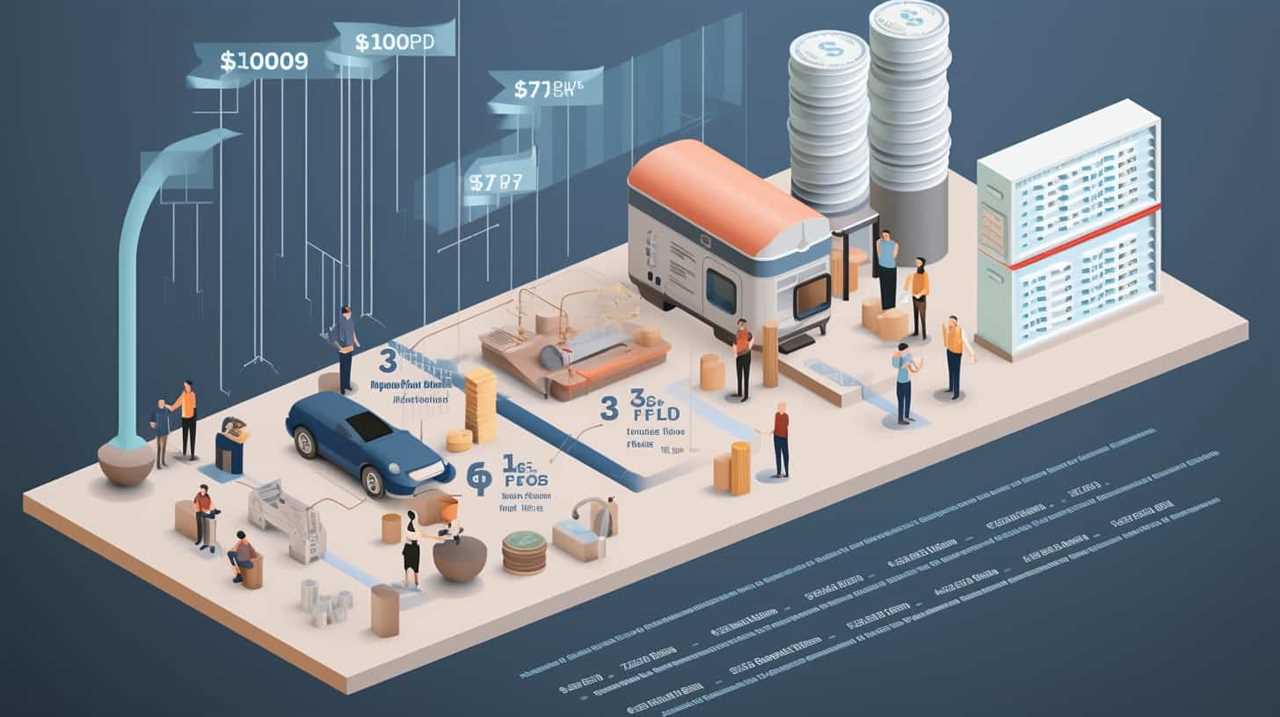
When it comes to heat pump maintenance, it’s essential to have a good grasp of troubleshooting techniques. A heat pump is a complex system that requires regular maintenance and occasional troubleshooting to ensure optimal performance.
One of the first troubleshooting techniques is to check the thermostat settings. Ensure that it’s set to the correct temperature and mode.
Next, inspect the air filters and clean or replace them if necessary. Clogged filters can restrict airflow and reduce the efficiency of the heat pump.
Additionally, it’s crucial to check the outdoor unit for any blockages or debris that might hinder its operation.
Identifying Common Heat Pump Issues and Solutions
To effectively troubleshoot heat pump issues, we need to identify common problems and their solutions. Here are some common heat pump issues and how to address them:
Compressor Issues: If the heat pump isn’t heating or cooling properly, it may be due to a faulty compressor. Check the compressor for any signs of damage or wear and tear. If necessary, replace the compressor to restore normal operation.
Defrost Problems: If the heat pump is constantly freezing up or not defrosting properly, it could be a problem with the defrost cycle. Check the defrost control board and thermostat settings to ensure they’re functioning correctly. Clean the coils and check for any obstructions that may be preventing proper defrosting.
Refrigerant Leaks: If the heat pump isn’t cooling or heating efficiently, it may be due to a refrigerant leak. Inspect the refrigerant lines and connections for any signs of leaks. If a leak is detected, repair the leak and recharge the system with the appropriate amount of refrigerant.

Thermostat Issues: If the heat pump isn’t turning on or off properly, it could be a problem with the thermostat. Check the thermostat settings and replace the batteries if necessary. If the thermostat is faulty, replace it with a new one.
Electrical Problems: If the heat pump isn’t working at all, it may be due to electrical issues. Check the circuit breakers and fuses to ensure they aren’t tripped or blown. If the electrical components are damaged, repair or replace them as needed.
Diagnosing Heat Pump Performance Problems
When diagnosing heat pump performance problems, there are several key points to consider.
Firstly, low airflow can be a common cause of issues, which may be due to a dirty air filter or a malfunctioning blower motor.
Secondly, refrigerant leaks can significantly impact the heat pump’s efficiency, requiring careful leak detection and repair.
Lastly, troubleshooting thermostat settings can help identify any potential issues with temperature control.
Low Airflow Causes
Our first step in diagnosing heat pump performance problems is to identify the specific causes of low airflow. Low airflow can significantly impact the efficiency and effectiveness of a heat pump system. Here are some common causes to consider:
- Airflow restrictions caused by dirty or clogged filters
- Improperly sized or malfunctioning blower motor
- Blocked or obstructed vents or registers
- Damaged or disconnected air ducts
- Faulty fan control switch or relay
Regular filter replacement is crucial to maintain proper airflow and prevent restrictions. By ensuring clean filters, you can optimize the performance of your heat pump.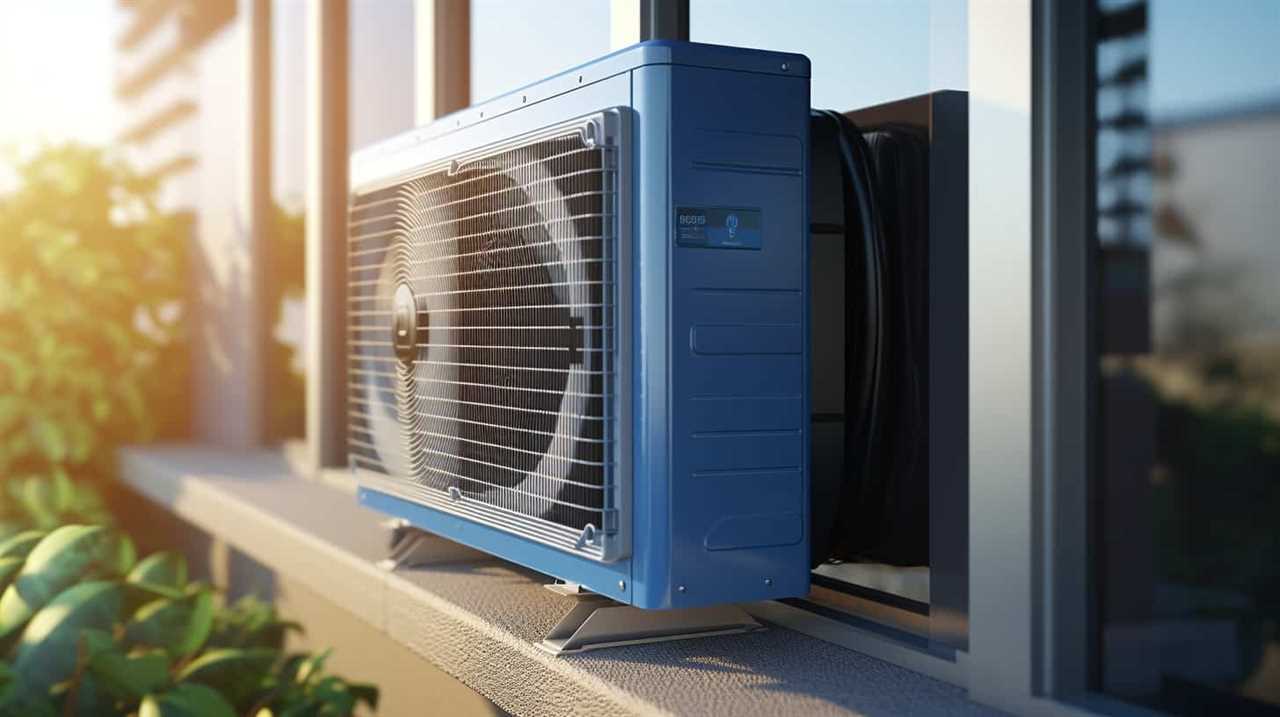
Once the low airflow causes have been identified and addressed, we can move on to the next step: refrigerant leak detection. This is essential in maintaining the overall functionality and efficiency of your heat pump.
Refrigerant Leak Detection
Identifying and addressing refrigerant leaks is crucial for diagnosing heat pump performance problems, as they can significantly impact the efficiency and effectiveness of the system. Refrigerant leaks not only lead to decreased cooling or heating capacity but can also cause system breakdowns if left unattended. Therefore, it is essential to detect and address these leaks early to prevent costly repairs and ensure optimal heat pump performance.
To aid in the detection of refrigerant leaks, the following table provides an overview of common signs and symptoms:
| Signs and Symptoms | Possible Causes |
|---|---|
| Insufficient cooling or heating | Low refrigerant charge |
| Ice buildup on the outdoor unit | Refrigerant leak |
| Hissing or bubbling noises | Refrigerant leak |
| High electric bills | Refrigerant leak |
By regularly inspecting your heat pump, checking for these signs, and promptly addressing any suspected refrigerant leaks, you can prevent further damage and optimize the performance of your system.
Now that we have covered refrigerant leak detection, let’s move on to the next section: thermostat settings troubleshooting.
Thermostat Settings Troubleshooting?
To ensure optimal heat pump performance, we need to troubleshoot thermostat settings and address any related performance problems. Here are some common issues to consider when troubleshooting thermostat settings:
Thermostat Calibration: A poorly calibrated thermostat can lead to inaccurate temperature readings and improper heat pump operation. It’s important to check and adjust the calibration if necessary.
Wiring Issues: Faulty or loose wiring connections can disrupt the communication between the thermostat and the heat pump, causing performance issues. Carefully inspect the thermostat wiring for any signs of damage or loose connections.
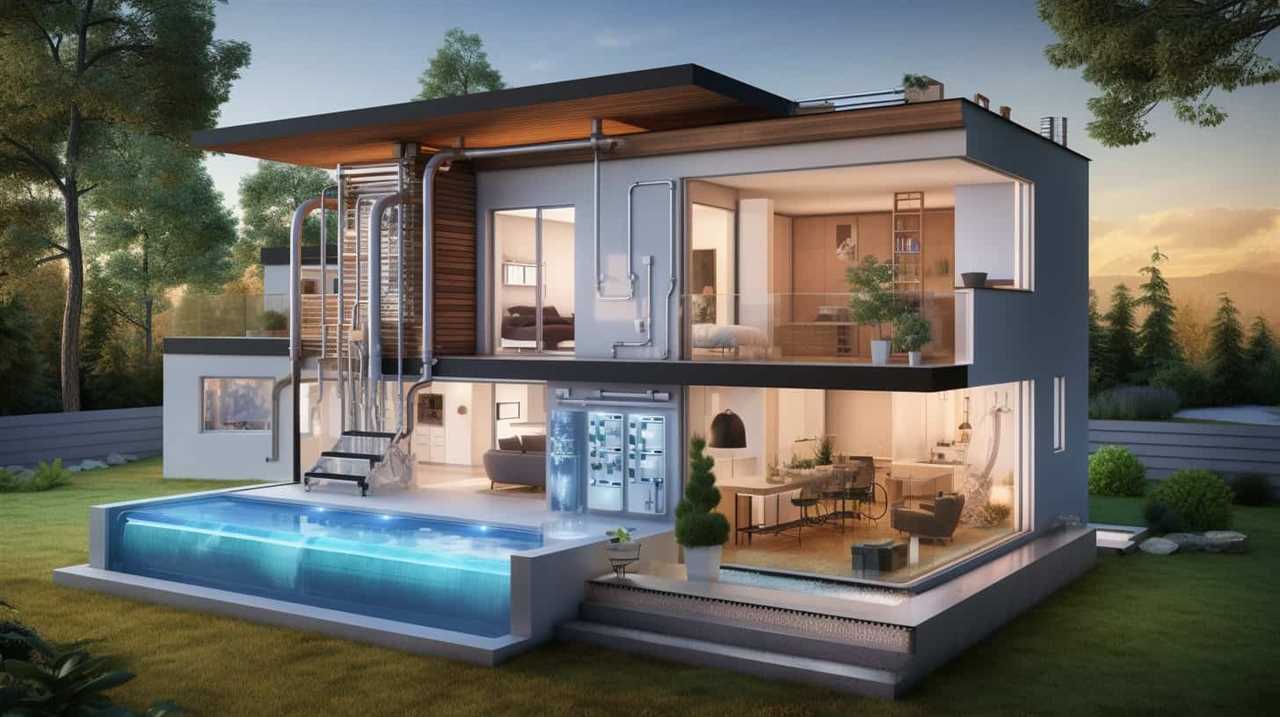
Incorrect Fan Settings: The fan setting on the thermostat should be set to ‘Auto’ instead of ‘On.’ If the fan is constantly running, it can affect the heat pump’s efficiency.
Programmable Thermostat Settings: Ensure that the thermostat is correctly programmed for your desired temperature settings and schedule. Incorrect programming can lead to unnecessary energy consumption and discomfort.
Battery Replacement: If your thermostat uses batteries, make sure to replace them regularly to avoid any power-related issues.
Troubleshooting Heat Pump Electrical and Control Systems
We can troubleshoot heat pump electrical and control systems by inspecting the wiring connections and testing the control board for any faults.
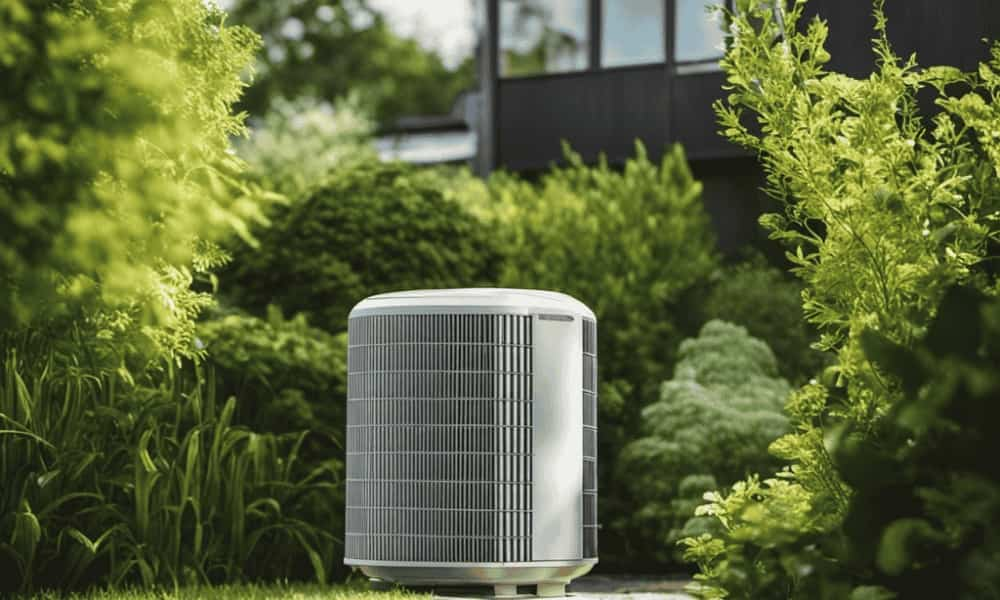
When it comes to thermostat troubleshooting, it’s important to check the wiring connections between the thermostat and the heat pump. Make sure that all the wires are securely connected and that there are no loose or damaged wires.
Additionally, it’s crucial to regularly perform electrical system maintenance to ensure the proper functioning of your heat pump. This includes cleaning and inspecting the electrical components, checking for any signs of wear or damage, and tightening any loose connections.
Optimizing Heat Pump Efficiency: Tips and Tricks
To optimize heat pump efficiency, we can implement various tips and tricks that will help us maximize the performance of our heating system. Here are some key strategies to consider:
Regular heat pump maintenance: Schedule regular maintenance appointments to ensure that your heat pump is clean, well-lubricated, and operating at peak efficiency.

Clean or replace filters: Dirty filters can restrict airflow and reduce the efficiency of your heat pump. Clean or replace them regularly to maintain optimal performance.
Keep the area around the heat pump clear: Remove any debris or obstructions around the outdoor unit to ensure proper airflow and prevent any potential damage.
Use a programmable thermostat: Set your thermostat to adjust the temperature based on your schedule, reducing unnecessary energy consumption.
Supplement with insulation: Improve the energy efficiency of your home by adding insulation to walls, attics, and crawl spaces.

Advanced Heat Pump Troubleshooting Techniques
Let’s now explore some advanced heat pump troubleshooting techniques.
Two common issues that can arise are error codes and refrigerant leaks.
Error codes provide valuable information about the specific problem, allowing for a quicker and more targeted resolution.
Refrigerant leaks, on the other hand, can lead to a decrease in heat pump performance and efficiency.

Common Error Codes
Our first step in advanced heat pump troubleshooting is to understand the common error codes that may appear. These error codes provide valuable information about the specific issue affecting the heat pump. Here are some of the most common error codes and their meanings:
E1: This code indicates a thermostat malfunction, which may require recalibration or replacement.
E2: This code signifies a compressor failure, which could be due to a faulty motor or electrical issue.
E3: This code suggests a refrigerant leak, which requires immediate attention from a professional technician.
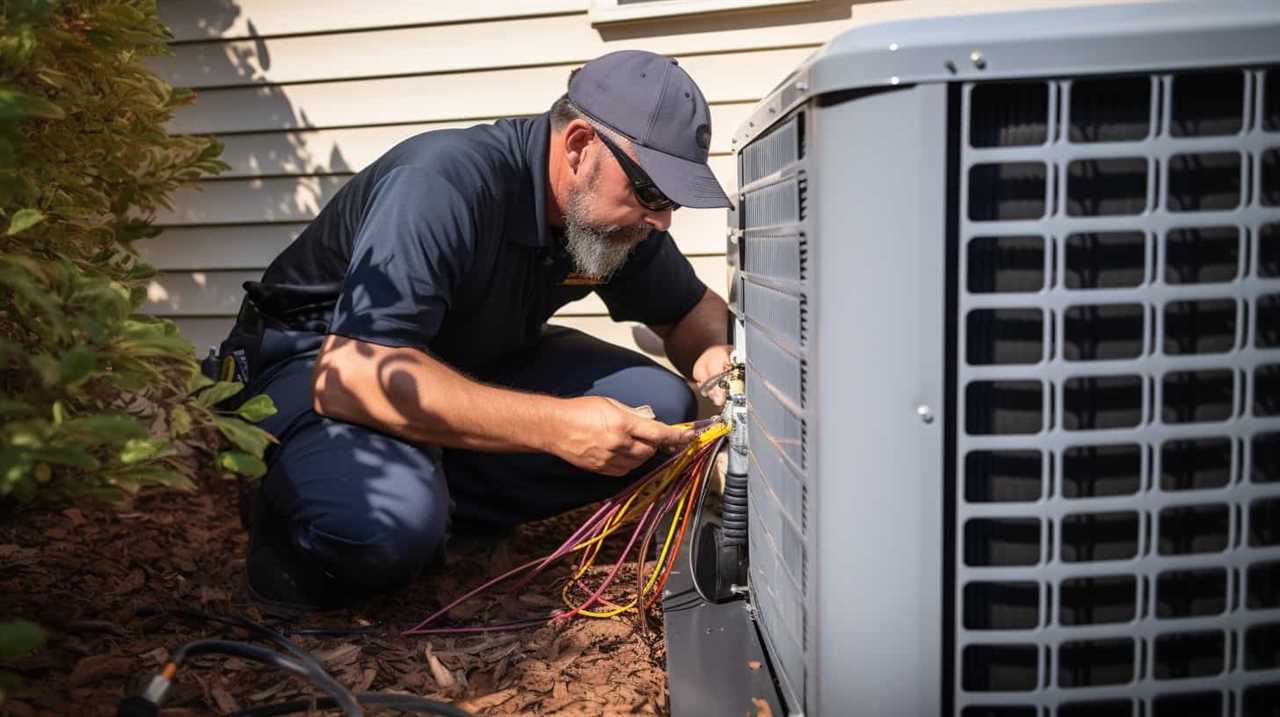
E4: This code points to a problem with the defrost cycle, such as a malfunctioning defrost sensor or control board.
E5: This code indicates an airflow issue, which could be caused by a dirty air filter or blocked vents.
Refrigerant Leaks
When dealing with refrigerant leaks in heat pump troubleshooting, it is important to identify the source of the leak and address it promptly. Refrigerant leaks can have serious consequences for the performance and efficiency of a heat pump system. Not only do they lead to a loss of refrigerant, which can impair the heat transfer process, but they can also result in higher energy consumption and reduced cooling or heating capability. Detecting refrigerant leaks requires the use of specialized tools and techniques. Some common refrigerant leak detection methods include electronic leak detectors, ultraviolet dye, and pressure testing. Once a leak is detected, it is crucial to repair or replace the faulty component to prevent further leaks and restore optimal heat pump operation.
| Refrigerant Leak Detection Methods | Consequences of Refrigerant Leaks | Repair Options |
|---|---|---|
| Electronic Leak Detectors | Loss of refrigerant | Replace faulty part |
| Ultraviolet Dye | Higher energy consumption | Repair leak |
| Pressure Testing | Reduced cooling/heating capability | Replace component |
Frequently Asked Questions
Can I Troubleshoot My Heat Pump if I Have No Prior Technical Knowledge?
Yes, we can help troubleshoot your heat pump even if you have no prior technical knowledge. Our troubleshooting steps and techniques are designed to guide you through the process and identify any issues.
How Often Should I Clean or Replace the Air Filters in My Heat Pump?
Regular air filter maintenance is crucial for optimal heat pump efficiency. Dirty filters can restrict airflow, reducing performance and increasing energy consumption. Signs of a dirty filter include reduced airflow, increased dust, and decreased heating or cooling capacity.
Are There Any Specific Maintenance Tasks I Can Perform to Prevent Common Heat Pump Issues?
We can prevent common heat pump issues with regular preventive maintenance tasks. By performing these tasks, we can ensure the optimal functioning of our heat pump and avoid any potential problems in the future.
What Are the Potential Causes of a Heat Pump Not Turning on at All?
If your heat pump isn’t turning on at all, there could be several potential causes. We will discuss heat pump troubleshooting steps and signs of a faulty heat pump to help you diagnose the issue.
How Can I Determine if My Heat Pump Is Operating at Its Maximum Efficiency?
To determine if our heat pump is operating at maximum efficiency, we should look for heat pump efficiency indicators and signs of heat pump inefficiency. These can help us identify if our system is working optimally or needs maintenance.

How Can I Troubleshoot Heat Pump Issues Using the Definitive Guide?
To troubleshoot heat pump issues effectively, utilizing the definitive guide that outlines heat pump troubleshooting techniques is highly recommended. This comprehensive resource enables you to identify and address common problems such as insufficient heating or cooling, unusual noises, or inadequate air circulation. By following the step-by-step instructions provided, you can diagnose and resolve heat pump issues with confidence.
Conclusion
In conclusion, mastering heat pump troubleshooting is essential for revolutionizing your warmth. By understanding the basics, identifying common issues, and diagnosing performance problems, you can effectively troubleshoot your heat pump.
Optimizing efficiency through electrical and control system troubleshooting, as well as implementing advanced techniques, will ensure a reliable and efficient heat pump system.
So, embark on this journey of technical prowess and unlock a world of warmth and comfort like never before, as you become the master of your heat pump’s performance.
HVAC Systems
Comparing Heat Pump Efficiency: Solutions for Electricity Usage

We have some astonishing statistics to share with you.
When it comes to heat pump efficiency, understanding the key factors impacting electricity usage is crucial.
In this article, we’ll compare energy consumption between heat pumps and traditional heating systems.
But that’s not all – we’ll also delve into optimizing heat pump performance for lower electricity usage and explore energy-saving solutions.
Join us as we uncover the secrets to maximizing efficiency and reducing electricity consumption.
Key Takeaways
- SEER and HSPF ratings indicate the efficiency of a heat pump, with higher ratings indicating better performance.
- Climate, insulation, heat pump size, and thermostat settings all impact the electricity usage of a heat pump.
- Heat pumps are more energy-efficient than traditional heating systems, as they transfer heat rather than relying on combustion processes.
- Optimizing heat pump performance through smart thermostats, insulation improvements, regular maintenance, and airflow optimization can reduce electricity usage.
Understanding Heat Pump Efficiency Ratings
We’ll start by exploring the three main heat pump efficiency ratings.
When it comes to heat pump efficiency, it’s important to understand the standards and measurements used.
The first rating is the Seasonal Energy Efficiency Ratio (SEER), which measures the cooling efficiency of the heat pump over an entire season. The higher the SEER rating, the more efficient the heat pump is.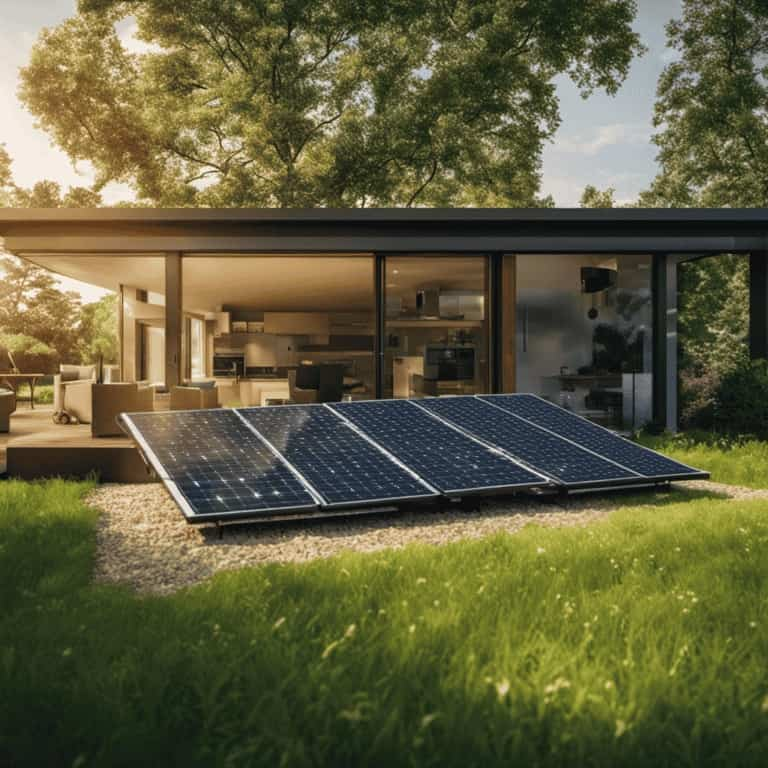
The second rating is the Heating Seasonal Performance Factor (HSPF), which measures the heating efficiency of the heat pump over a season. Again, a higher HSPF rating indicates a more efficient heat pump.
Lastly, we’ve the Coefficient of Performance (COP), which measures the ratio of heat output to the energy input. The higher the COP, the more efficient the heat pump.
Understanding these efficiency ratings is crucial when comparing and selecting a heat pump for optimal energy usage.
Key Factors Impacting Heat Pump Electricity Usage
When considering heat pump electricity usage, there are several key factors that can significantly impact efficiency. To conduct a thorough heat pump energy consumption analysis and maximize efficiency, it’s essential to take into account the following factors: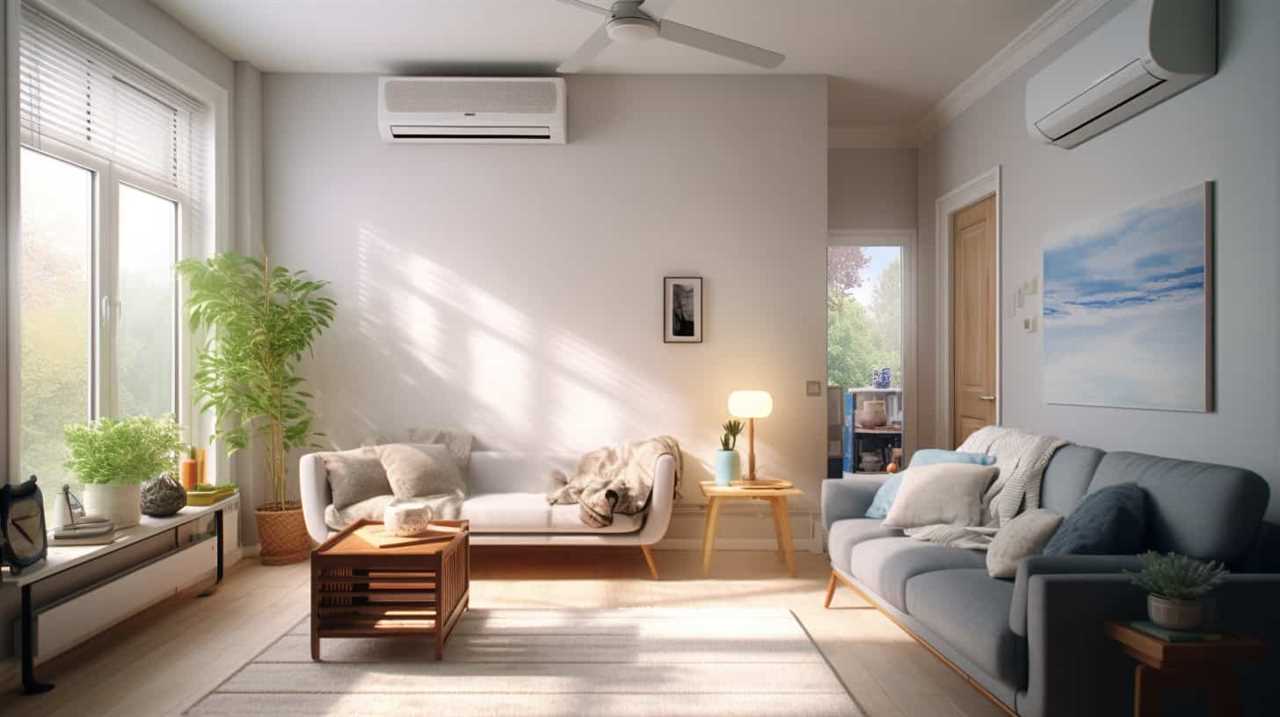
Climate: The temperature and humidity levels in your region can affect how hard the heat pump needs to work to maintain desired indoor temperatures.
Insulation: Proper insulation in your home helps to minimize heat loss, reducing the workload on the heat pump.
Sizing: Choosing the right-sized heat pump for your space is crucial. An oversized or undersized unit can lead to inefficient operation and higher electricity usage.
Thermostat settings: Optimal thermostat settings can help regulate temperature effectively, avoiding unnecessary energy consumption.

Maintenance: Regular maintenance, including cleaning filters and checking refrigerant levels, ensures that the heat pump operates efficiently and minimizes electricity usage.
Comparing Energy Consumption: Heat Pump Vs Traditional Heating Systems
There are several key differences in energy consumption between heat pumps and traditional heating systems.
When comparing the two, it becomes evident that heat pumps are a more energy efficient alternative for cost-effective heating. Heat pumps work by transferring heat from the outside air or ground into a building, rather than generating heat. This significantly reduces the amount of electricity required to provide heating.
Traditional heating systems, on the other hand, typically use combustion processes to generate heat, which can be quite energy-intensive.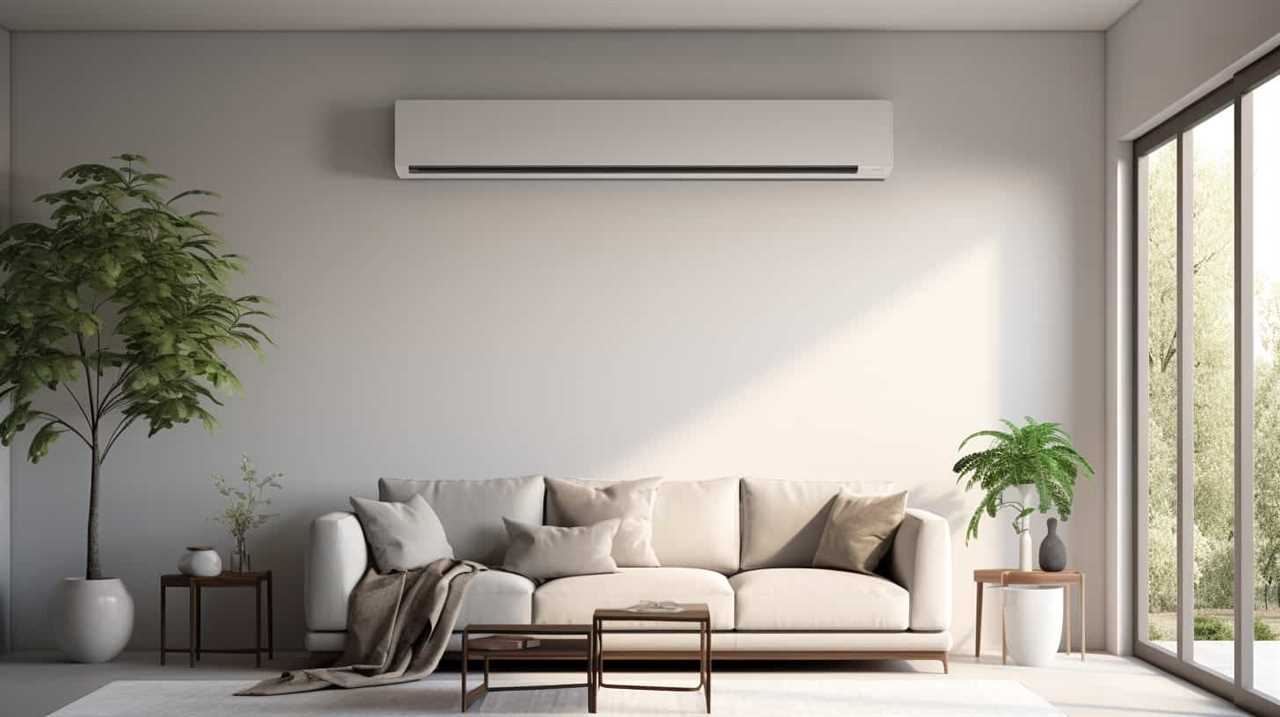
Heat pumps also have the advantage of being able to provide both heating and cooling, further increasing their energy efficiency.
Optimizing Heat Pump Performance for Lower Electricity Usage
To optimize heat pump performance and achieve lower electricity usage, we can implement various strategies and techniques. Here are five key approaches that can help in this endeavor:
Smart Thermostat Integration: By integrating a smart thermostat with your heat pump system, you can have greater control over temperature settings and scheduling, allowing you to optimize energy usage based on your specific needs and preferences.
Insulation Improvements: Enhancing the insulation of your home can significantly reduce heat loss and improve the overall efficiency of your heat pump. Proper insulation in walls, floors, and ceilings minimizes the need for your heat pump to work harder to maintain desired temperatures.

Regular Maintenance: Regularly servicing your heat pump ensures that it operates at its peak efficiency. This includes cleaning or replacing filters, checking refrigerant levels, and inspecting the overall functioning of the system.
Airflow Optimization: Ensuring proper airflow by keeping vents unobstructed and clean allows for efficient heat distribution throughout your home, reducing the workload on your heat pump.
Efficient Temperature Settings: Adjusting your thermostat to slightly lower temperatures in the winter and slightly higher temperatures in the summer can lead to noticeable energy savings without sacrificing comfort.
Energy-Saving Solutions for Heat Pump Electricity Consumption
To reduce heat pump electricity consumption, we can implement energy-saving solutions that optimize efficiency and minimize energy waste. Two effective strategies for achieving this are smart thermostat integration and insulation improvements. By integrating a smart thermostat with your heat pump system, you can take advantage of advanced features such as programmable schedules and remote control options. This allows you to optimize the temperature settings and reduce unnecessary energy usage. Additionally, improving insulation in your home can greatly reduce heat loss and improve the overall efficiency of your heat pump. Proper insulation helps to maintain a consistent indoor temperature, reducing the workload on the heat pump and minimizing electricity consumption. By implementing these energy-saving solutions, you can effectively reduce your heat pump’s electricity usage and save on energy costs.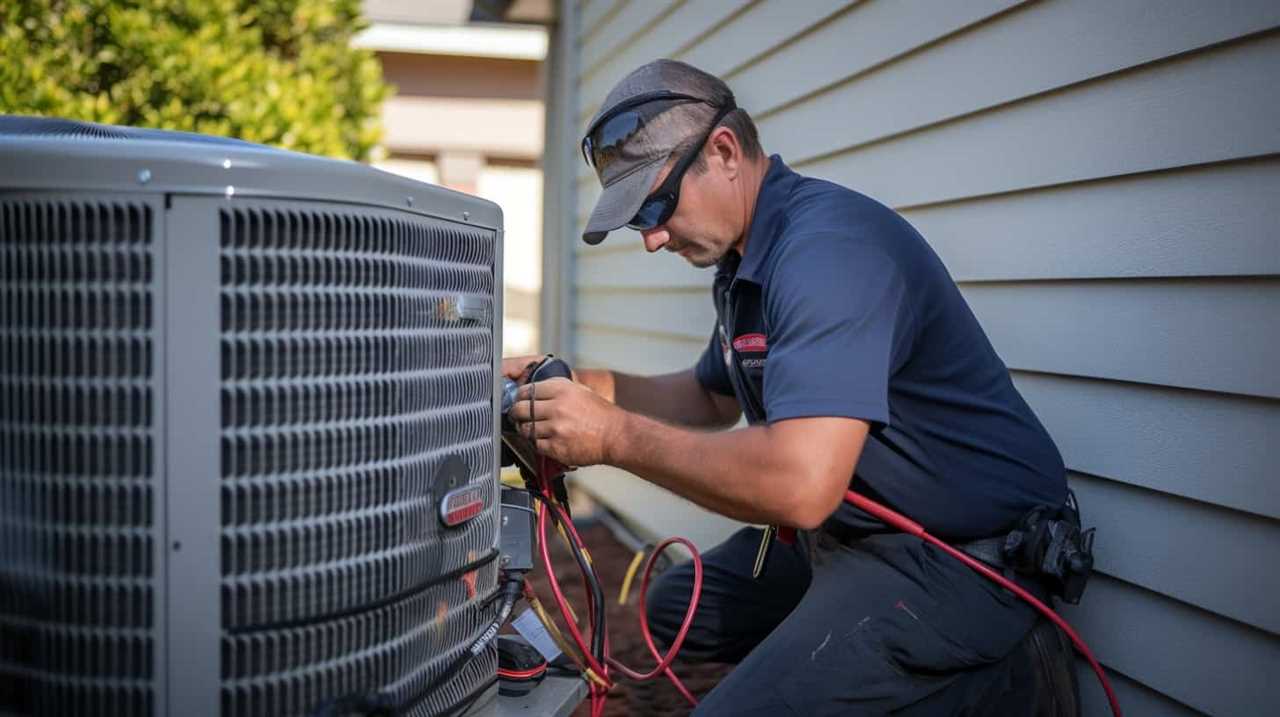
| Energy-Saving Solution | Description | Benefits |
|---|---|---|
| Smart Thermostat Integration | Integrating a smart thermostat with your heat pump system allows for advanced temperature control and scheduling options. This helps optimize energy usage and reduce unnecessary heating and cooling. | – Programmable schedules |
- Remote control options
- Increased energy efficiency | | Insulation Improvements | Improving the insulation in your home reduces heat loss and helps maintain a consistent indoor temperature. This reduces the workload on the heat pump and minimizes electricity consumption. | – Reduced heat loss
- Improved energy efficiency
- Consistent indoor temperature throughout the year |
Frequently Asked Questions
Are There Any Government Incentives or Rebates Available for Installing a Heat Pump?
Yes, there are government incentives and rebates available for installing a heat pump. These incentives can help offset the cost of installation and provide cost savings in the long run due to increased energy efficiency.
How Long Does a Heat Pump Typically Last Before It Needs to Be Replaced?
How long does a heat pump typically last before it needs to be replaced? We’ll explore the heat pump lifespan and the signs of heat pump replacement to help you understand when it’s time for an upgrade.
Can a Heat Pump Be Used to Cool a Home During the Summer Months?
Yes, a heat pump can be used to cool a home during the summer months. It functions by extracting heat from the indoor air and transferring it outside, resulting in a cooler indoor environment.
Are There Any Additional Maintenance Tasks Required for a Heat Pump Compared to Traditional Heating Systems?
There are additional maintenance tasks required for a heat pump compared to traditional heating systems. These tasks include regular filter cleaning or replacement, annual professional inspections, and ensuring proper airflow to optimize energy consumption.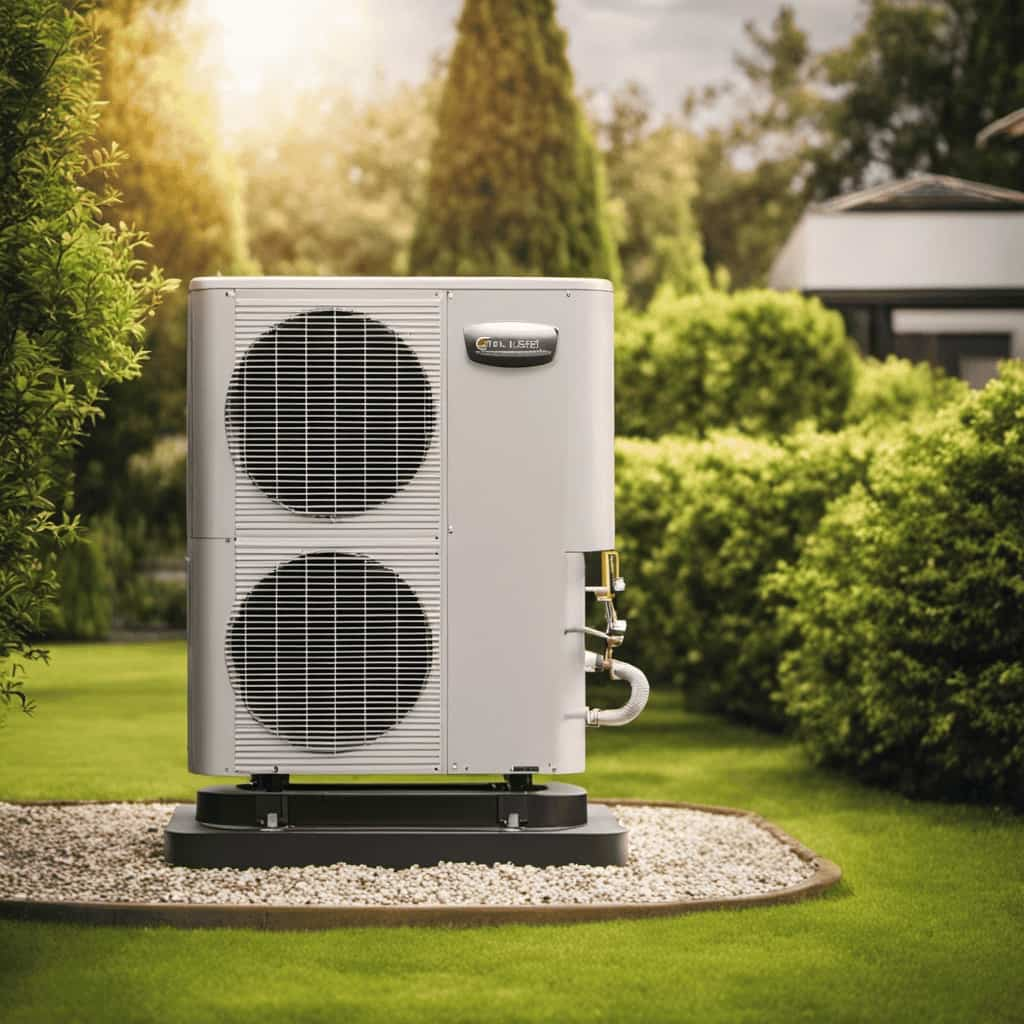
How Does the Efficiency of a Heat Pump Compare to Other Renewable Energy Sources Like Solar Panels or Geothermal Systems?
When comparing heat pump efficiency to other renewable energy sources like solar panels, it’s important to consider the pros and cons. Heat pumps offer efficient heating and cooling, but solar panels provide clean electricity generation.
What Should I Consider When Comparing HVAC Systems and Heat Pumps?
When comparing hvac systems vs heat pump, there are a few key factors to consider. First, evaluate the energy efficiency ratings of each system. The Seasonal Energy Efficiency Ratio (SEER) and Heating Seasonal Performance Factor (HSPF) are essential in determining their efficiency. Additionally, take into account the initial cost, installation requirements, and maintenance needs of both options. Lastly, consider the climate you live in, as this can impact the system’s performance and suitability for your home.
Conclusion
In conclusion, after analyzing the efficiency ratings and energy consumption of heat pumps compared to traditional heating systems, it’s clear that heat pumps offer significant advantages in terms of electricity usage.
By optimizing heat pump performance and implementing energy-saving solutions, users can further reduce their electricity consumption.
So, why settle for outdated and inefficient heating systems when heat pumps provide a smarter, more environmentally friendly solution?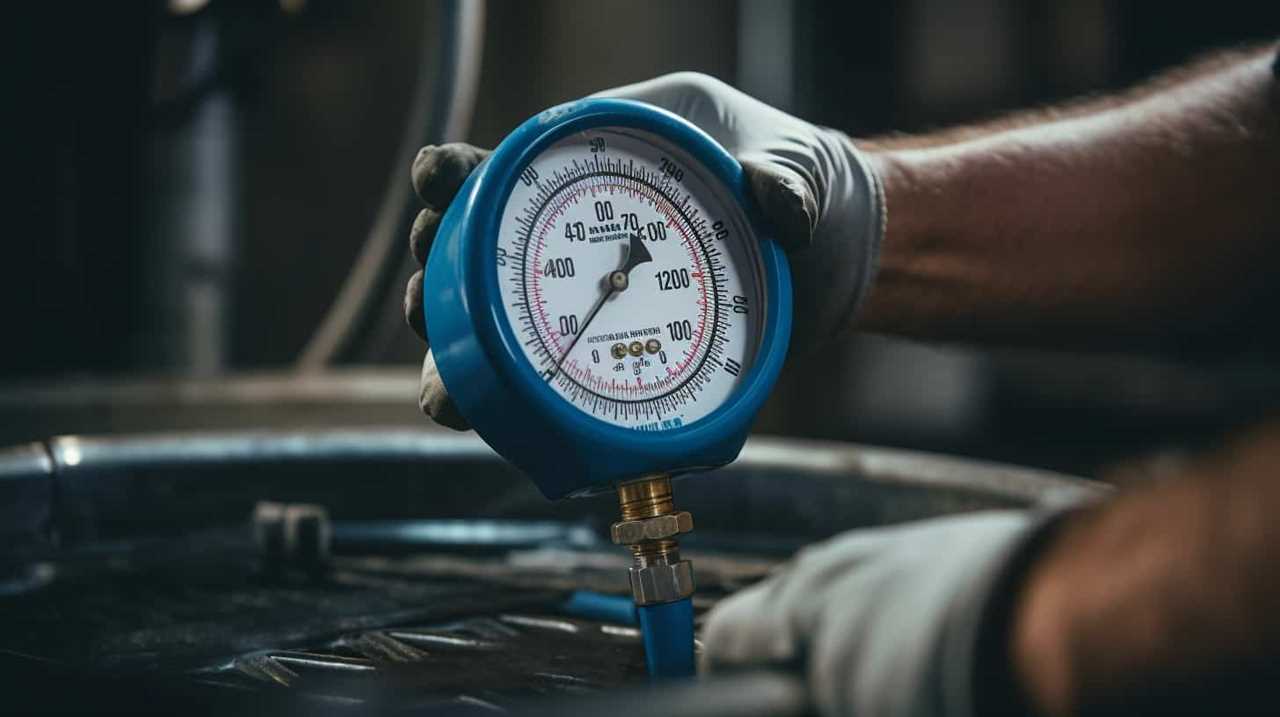
Embrace the future of heating and save both energy and money with heat pumps.
HVAC Systems
Defining ROI: Energy-Efficient Heat Pumps Analysis

We have come across an interesting fact: energy-efficient heat pumps can greatly affect your return on investment (ROI).
In this analysis, we delve into the financial benefits and long-term savings of these innovative devices. By understanding the cost-benefit analysis and factors affecting ROI, you can make informed decisions about implementing energy-efficient heat pumps.
Join us as we explore how this technology can revolutionize your energy consumption and contribute to a more sustainable future.
Key Takeaways
- Calculating ROI helps make informed decisions.
- Heat pumps reduce energy consumption and costs.
- Long-term savings outweigh initial costs.
- Rebates and incentives can reduce upfront costs and increase savings potential.
The Importance of ROI in Energy-Efficient Heat Pumps
We understand the importance of calculating ROI in energy-efficient heat pumps for making informed decisions.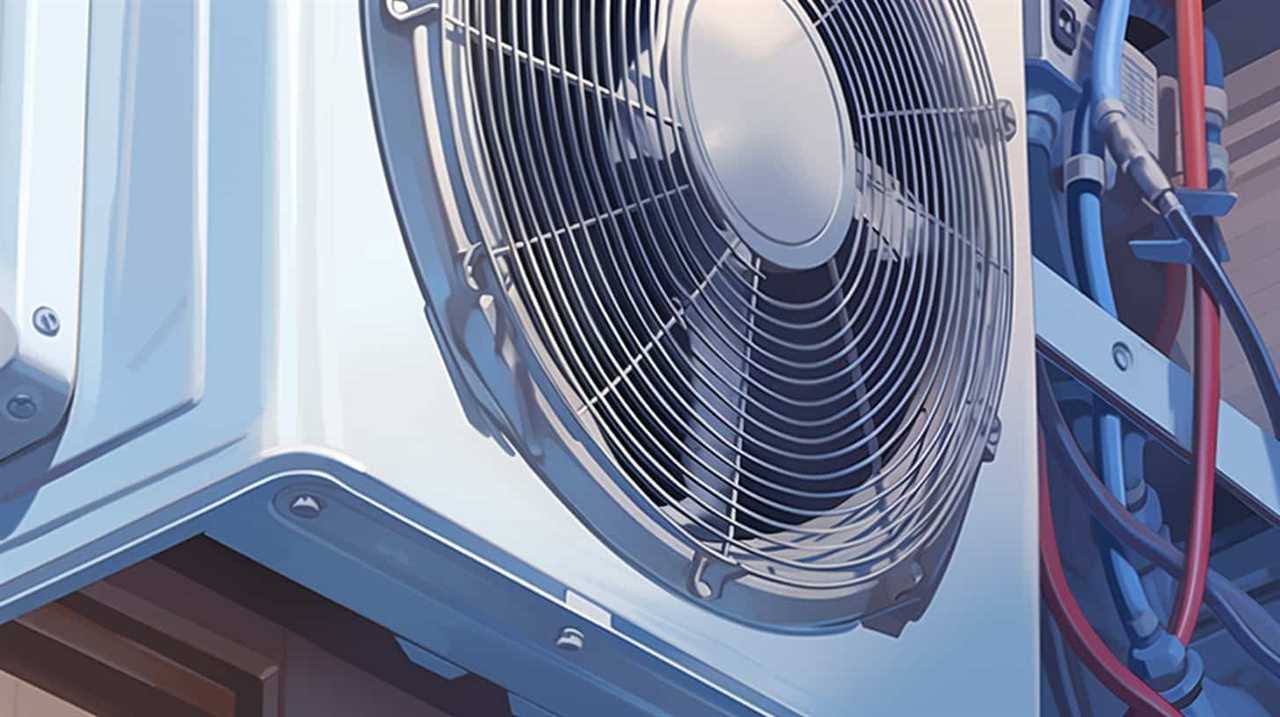
When it comes to investing in energy-efficient heat pumps, it’s crucial to consider the significance of calculating ROI.
By analyzing the relationship between energy savings and return on investment, we can determine the financial benefits of implementing energy-efficient heat pumps in our systems.
Calculating ROI allows us to evaluate the cost-effectiveness of these heat pumps and make informed decisions regarding their adoption.
By considering factors such as upfront costs, energy savings, and maintenance expenses, we can determine the payback period and overall financial viability of these investments.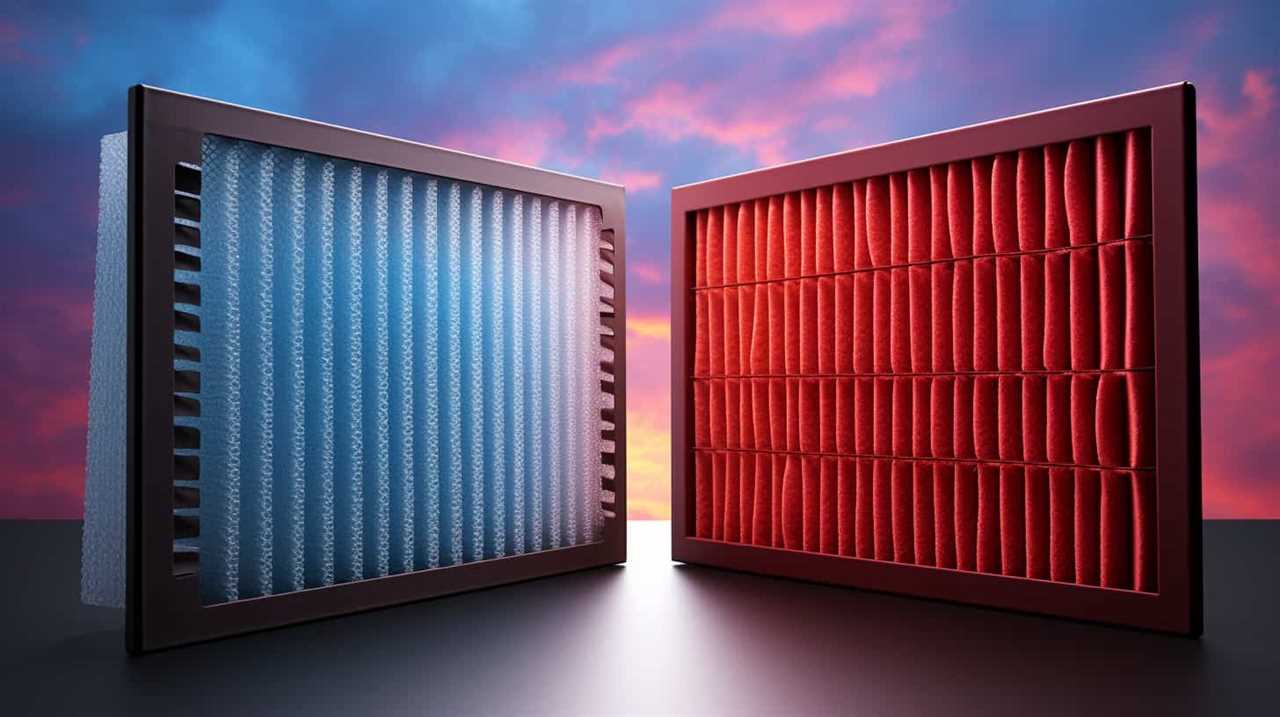
This analysis empowers us to prioritize and allocate resources effectively, ensuring that our energy systems aren’t only efficient but also financially sustainable.
Understanding the Cost-Benefit Analysis of Heat Pump Energy Efficiency
When conducting a cost-benefit analysis of heat pump energy efficiency, it’s essential to consider the financial implications and potential savings. A key component of this analysis is the cost effectiveness analysis, which evaluates the financial benefits of energy consumption reduction achieved through heat pump efficiency.
By comparing the initial investment in energy-efficient heat pumps with the projected savings in energy costs over the system’s lifespan, businesses and homeowners can determine the viability of implementing these technologies. The savings are achieved through reduced energy consumption, as heat pumps utilize renewable energy sources and operate more efficiently than traditional heating and cooling systems.
This cost effectiveness analysis provides a clear understanding of the financial benefits associated with energy-efficient heat pumps, allowing decision-makers to make informed choices regarding their adoption.
Now, let’s delve into the factors that can affect the return on investment (ROI) in energy-efficient heat pumps.
Factors Affecting ROI in Energy-Efficient Heat Pumps
As we explore the factors affecting ROI in energy-efficient heat pumps, it’s important to consider the upfront costs, energy savings, and maintenance expenses. These factors play a crucial role in determining the overall financial benefits of investing in energy-efficient heat pumps.
Firstly, upfront costs are a significant factor in calculating ROI. Energy-efficient heat pumps generally have a higher initial cost compared to traditional heating systems. However, the long-term energy savings they provide can offset this initial expense.
The potential for substantial energy savings is another factor to consider. Energy-efficient heat pumps utilize advanced technology to maximize energy efficiency, resulting in lower energy consumption and reduced utility bills.
Additionally, maintenance expenses should be taken into account when evaluating ROI. While energy-efficient heat pumps require regular maintenance to ensure optimal performance, they generally have lower maintenance costs compared to traditional heating systems.
By considering these factors, we can better understand the potential benefits of investing in energy-efficient heat pumps.
Now, let’s move on to the next section where we’ll analyze the financial benefits of these innovative systems.
Analyzing the Financial Benefits of Energy-Efficient Heat Pumps
To fully understand the financial benefits of energy-efficient heat pumps, we’ll analyze the cost savings and return on investment they offer.
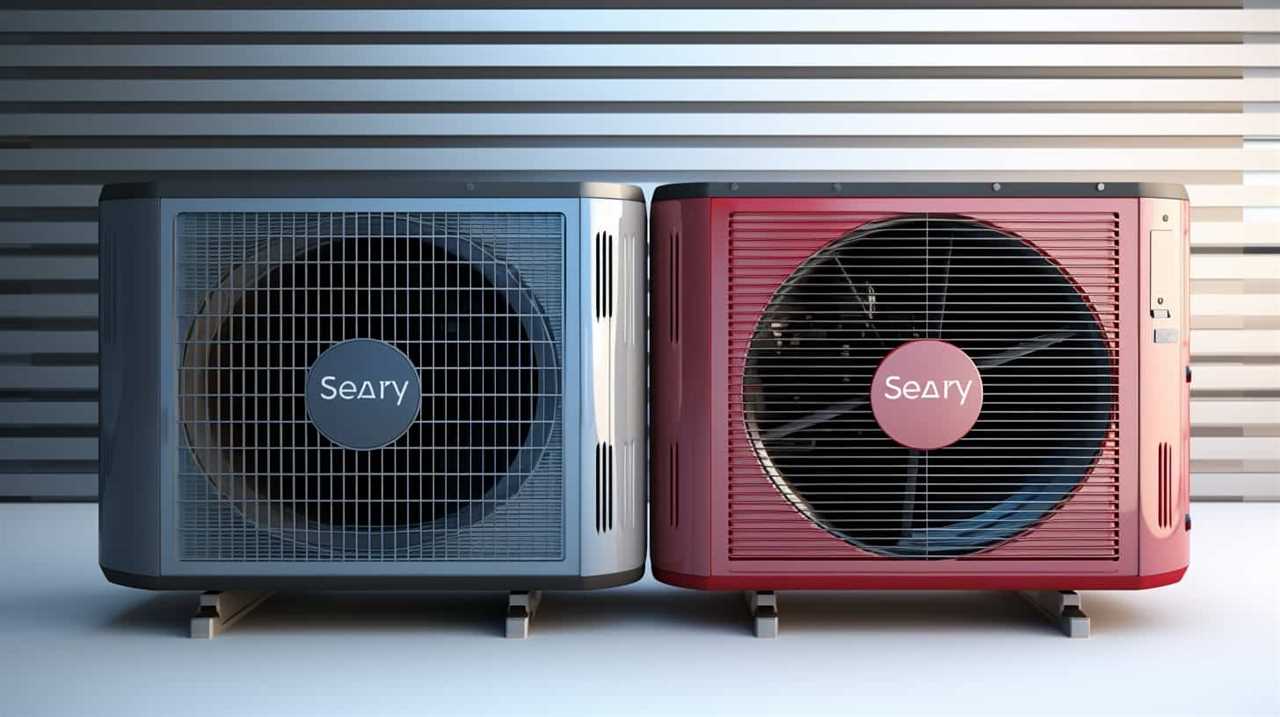
When it comes to the financial implications of energy-efficient heat pumps, the most significant advantage lies in the energy savings they provide. By utilizing advanced technology and efficient design, these heat pumps can significantly reduce energy consumption compared to traditional heating methods. This translates into lower energy bills for homeowners and businesses, resulting in substantial cost savings over time.
Additionally, the return on investment for energy-efficient heat pumps is often quite favorable. While the upfront costs may be higher than conventional heating systems, the long-term savings and reduced energy consumption make them a financially sound choice.
Evaluating the Long-Term Savings of Energy-Efficient Heat Pumps
We will assess the long-term savings of energy-efficient heat pumps and determine their financial viability.
When evaluating the performance of energy-efficient heat pumps and comparing models, the following factors should be considered:
Energy Efficiency: Look for heat pumps with high energy efficiency ratings, which indicate lower energy consumption and potential cost savings over time.
Operational Costs: Consider the maintenance and repair costs associated with different heat pump models. Lower operational costs can contribute to long-term savings.
Lifespan: Evaluate the expected lifespan of the heat pump models being compared. Longer lifespans can result in greater overall savings.
Rebates and Incentives: Research available rebates and incentives for energy-efficient heat pumps. Take advantage of these programs to maximize savings.

Frequently Asked Questions
How Does the Installation Process of Energy-Efficient Heat Pumps Affect the Roi?
The installation process of energy-efficient heat pumps significantly impacts the ROI. By optimizing the installation, we can ensure maximum energy savings, leading to a higher return on investment and increased efficiency for our innovative audience.
Are There Government Incentives or Rebates Available for Investing in Energy-Efficient Heat Pumps?
Yes, there are government incentives and rebates available for investing in energy-efficient heat pumps. These incentives provide financial benefits that can significantly impact the return on investment for individuals and businesses.
What Are the Maintenance Requirements for Energy-Efficient Heat Pumps and How Do They Impact the Overall Roi?
Maintenance costs for energy-efficient heat pumps can impact the overall ROI. Regular maintenance ensures optimal performance and extends the lifespan of the system. However, these costs are outweighed by the long-term savings in energy consumption.
How Does the Climate and Geographical Location Affect the Efficiency and ROI of Energy-Efficient Heat Pumps?
The climate impact and geographical factors play a significant role in the efficiency and ROI of energy-efficient heat pumps. These variables determine the unit’s performance and potential savings, making them crucial considerations for innovative solutions.
Are There Any Potential Risks or Drawbacks Associated With Investing in Energy-Efficient Heat Pumps That Could Impact the Roi?
There can be potential risks and drawbacks associated with investing in energy-efficient heat pumps that could impact the ROI. It is crucial to analyze factors like maintenance costs and potential technology obsolescence before making the investment.
What Factors Contribute to the Cost-Efficiency of Energy-Efficient Heat Pumps?
The cost-efficiency of energy-efficient heat pumps is influenced by several factors. Firstly, the upfront cost of purchasing and installing the heat pump plays a significant role. Additionally, the energy consumption and efficiency ratings of the pump impact its operating costs. Proper maintenance and insulation of the building also contribute to its cost-efficiency. Lastly, available government incentives and rebates can further enhance the overall cost-efficiency of energy-efficient heat pumps.
Conclusion
In conclusion, energy-efficient heat pumps offer a promising return on investment (ROI) for homeowners and businesses. By carefully analyzing the cost-benefit analysis and considering factors such as energy savings and long-term financial benefits, it’s clear that investing in these heat pumps can lead to significant savings and contribute to a more sustainable future.
Symbolically, energy-efficient heat pumps act as a beacon of efficiency, guiding us towards a greener and more cost-effective solution for heating and cooling needs.
HVAC Systems
Revolutionizing Climate Control: Green Heating Reduces Carbon Footprint

Are you aware that traditional heating methods account for a significant 30% of worldwide carbon emissions? It’s time for a shift.
In this article, we explore the revolutionary world of green heating and its potential to reduce our carbon footprint. By harnessing the power of renewable energy sources and prioritizing energy efficiency, we can pave the way towards a sustainable future.
Join us as we uncover the solutions that will liberate us from the shackles of harmful climate control practices.
Key Takeaways
- Conventional heating methods contribute significantly to global carbon emissions and have adverse effects on air quality and human health.
- Sustainable alternatives, such as heat pumps and renewable energy-powered heating systems, can significantly reduce emissions and reliance on fossil fuels.
- Geothermal and solar heating systems offer benefits such as lower greenhouse gas emissions, energy cost savings, and increased energy independence.
- Energy efficiency measures in heating systems play a vital role in reducing energy consumption, greenhouse gas emissions, and financial savings through lower utility bills.
The Environmental Impact of Conventional Heating Methods
We need to understand the environmental impact of conventional heating methods in order to make informed decisions about reducing our carbon footprint.
Conventional heating methods, such as the burning of fossil fuels, contribute significantly to greenhouse gas emissions. According to the United States Environmental Protection Agency, residential heating accounts for nearly a quarter of total emissions. These emissions not only contribute to climate change but also have adverse effects on air quality and human health.
It’s imperative that we explore sustainable alternatives to reduce emissions. One such alternative is the use of renewable energy sources, such as geothermal or solar heating systems. These systems harness clean energy, reducing our dependence on fossil fuels and minimizing carbon emissions.
Understanding Heat Pump Technology and Its Benefits
Heat pump technology offers numerous benefits in terms of energy efficiency and sustainability. Here are four key advantages of geothermal heating and heat pump efficiency:
Lower energy consumption: Heat pumps operate by transferring heat from one place to another, rather than generating heat themselves. This results in significant energy savings compared to traditional heating methods.
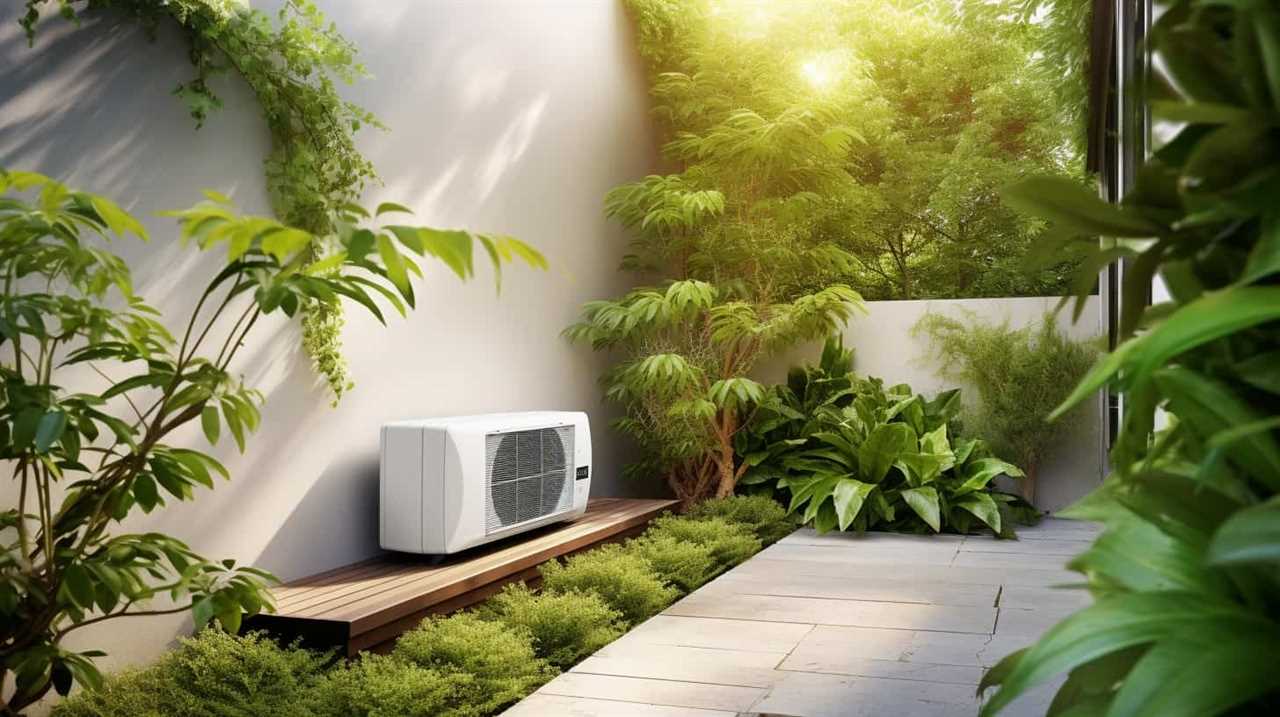
Reduced carbon footprint: By utilizing renewable energy sources, such as the heat from the ground or air, heat pumps emit fewer greenhouse gases than fossil fuel-based heating systems. This helps combat climate change and reduces our overall carbon footprint.
Year-round comfort: Heat pumps can provide both heating and cooling capabilities, making them versatile and suitable for all seasons. They can extract heat from the environment to warm your home in winter and reverse the process to cool it during summer.
Cost savings: Due to their high energy efficiency, heat pumps can lead to substantial cost savings on monthly utility bills. Additionally, geothermal heating systems have lower maintenance requirements and a longer lifespan compared to other heating systems, further reducing expenses.
Exploring Renewable Energy Sources for Heating
By harnessing the power of renewable energy sources, such as solar and geothermal, we can significantly reduce our carbon footprint while providing efficient heating solutions. Geothermal heating utilizes the Earth’s natural heat to warm our homes and buildings, while solar heating harnesses the energy from the sun. These renewable energy sources offer numerous benefits, including lower greenhouse gas emissions, lower energy costs, and increased energy independence.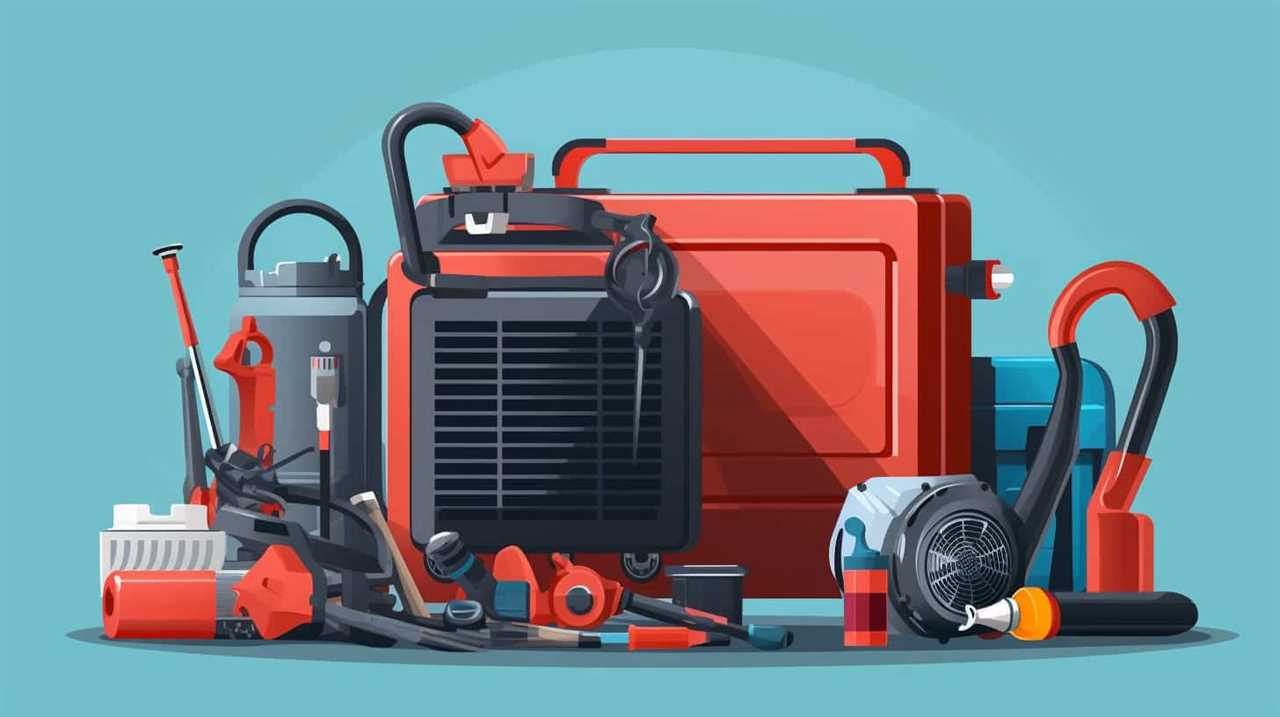
In geothermal heating systems, heat pumps are used to transfer the heat from the ground to the building, providing a reliable and constant source of warmth. Solar heating systems, on the other hand, use solar collectors to absorb the sun’s energy and convert it into heat, which is then used for heating purposes.
To better understand the advantages of geothermal and solar heating, let’s take a look at the following table:
| Renewable Energy Source | Advantages |
|---|---|
| Geothermal Heating | – High energy efficiency |
- Minimal environmental impact
- Reliable and constant heat supply | | Solar Heating | – Abundant and renewable energy source
- Reduced reliance on fossil fuels
- Lower energy costs |
The Role of Energy Efficiency in Reducing Carbon Footprint
One of the key ways to reduce our carbon footprint is by improving energy efficiency in our heating systems. By incorporating energy efficient appliances and sustainable building design, we can significantly decrease our energy consumption and greenhouse gas emissions.
Here are four reasons why energy efficiency plays a crucial role in reducing our carbon footprint:
Lower energy consumption: Energy efficient appliances are designed to use less energy while still providing the same level of comfort. This means less energy is needed to heat our homes, resulting in reduced carbon emissions.
Reduced reliance on fossil fuels: Energy efficiency measures can help us decrease our dependence on fossil fuels for heating. By using renewable energy sources such as solar or geothermal, we can further reduce our carbon footprint.
Financial savings: Energy efficient heating systems can lead to significant cost savings over time. By reducing energy consumption, homeowners can lower their utility bills and save money while also reducing their carbon footprint.
Climate change mitigation: Improving energy efficiency in heating systems is a practical and effective way to mitigate climate change. By reducing carbon emissions, we can contribute to the global effort to combat the adverse effects of climate change.

Green Heating Solutions for a Sustainable Future
As we look to the future, we can achieve a sustainable and eco-friendly heating system by implementing green heating solutions. Two key solutions that hold great promise are solar powered heating and geothermal technology. Solar powered heating utilizes the sun’s energy to generate heat, reducing our reliance on fossil fuels and lowering carbon emissions. This technology harnesses the power of solar panels to convert sunlight into usable energy for heating purposes. On the other hand, geothermal technology involves tapping into the Earth’s natural heat to warm our homes and buildings. By utilizing the constant temperature beneath the Earth’s surface, geothermal systems provide efficient and renewable heating. Both solar powered heating and geothermal technology offer viable alternatives to traditional heating methods, allowing us to reduce our carbon footprint while enjoying the benefits of a sustainable future.
| Solar Powered Heating | Geothermal Technology | |
|---|---|---|
| – Utilizes sunlight to generate heat | Taps into the Earth’s natural heat | |
| – Reduces reliance on fossil fuels | Provides efficient and renewable heating | |
| – Lowers carbon emissions | Utilizes constant temperature beneath the Earth’s surface | |
| – Utilizes solar panels | Offers a sustainable alternative to traditional heating methods | |
| – Provides a sustainable and eco-friendly heating solution | Allows for a reduction in carbon footprint |
Frequently Asked Questions
How Much Does It Cost to Install a Heat Pump System for Heating?
Cost of installing a heat pump system for heating varies based on factors like size, type, and location. However, a cost comparison shows that heat pumps are more energy-efficient in the long run, leading to significant savings.
Are There Any Government Incentives or Rebates Available for Switching to Green Heating Solutions?
Yes, there are government incentives and rebates available for switching to green heating solutions. These financial benefits can help offset the cost of installation and encourage the adoption of more environmentally-friendly heating systems.
What Is the Average Lifespan of a Heat Pump System Compared to Conventional Heating Methods?
The average lifespan of a heat pump system is significantly longer compared to conventional heating methods. This not only improves heat pump efficiency but also reduces the environmental impact of traditional heating methods.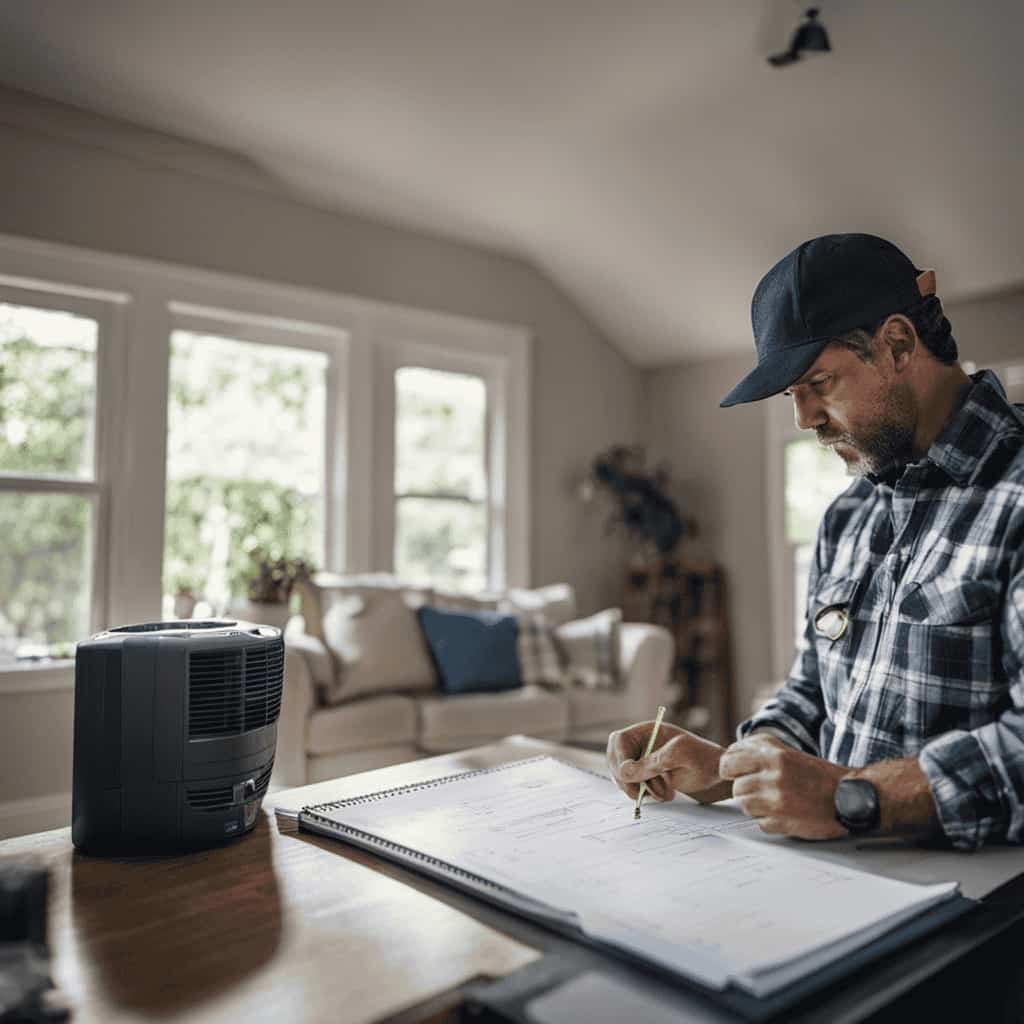
Can Green Heating Solutions Be Integrated With Existing Heating Systems in Older Homes?
Renovating older homes can be a challenge when retrofitting existing heating systems. However, with the right expertise and technology, integrating green heating solutions into older homes is not only possible but also a step towards liberation from carbon-intensive practices.
Are There Any Limitations or Drawbacks to Using Renewable Energy Sources for Heating?
There are limitations and drawbacks to using renewable energy sources for heating. These include higher upfront costs, intermittent energy generation, and the need for backup systems. However, with advancements in technology, these challenges can be overcome, leading to a greener and more sustainable future.
How Does Green Heating Using Heat Pumps Contribute to Reducing Electricity Usage?
Green heating using heat pump efficiency solutions significantly reduces electricity usage. Heat pumps extract renewable heat energy from the environment and use it to heat buildings. By doing so, they consume less electricity compared to traditional heating systems. Heat pump efficiency solutions optimize the performance of these systems, allowing them to provide heating and cooling with minimal electricity input. This reduces energy consumption, lowers carbon emissions, and contributes to a more sustainable and eco-friendly future.
Conclusion
In conclusion, green heating solutions have the potential to revolutionize climate control and significantly reduce our carbon footprint. By utilizing heat pump technology and renewable energy sources, we can achieve both energy efficiency and environmental sustainability.
One interesting statistic to note is that switching to green heating methods can reduce carbon emissions by up to 70%, making it a crucial step towards a more sustainable future.
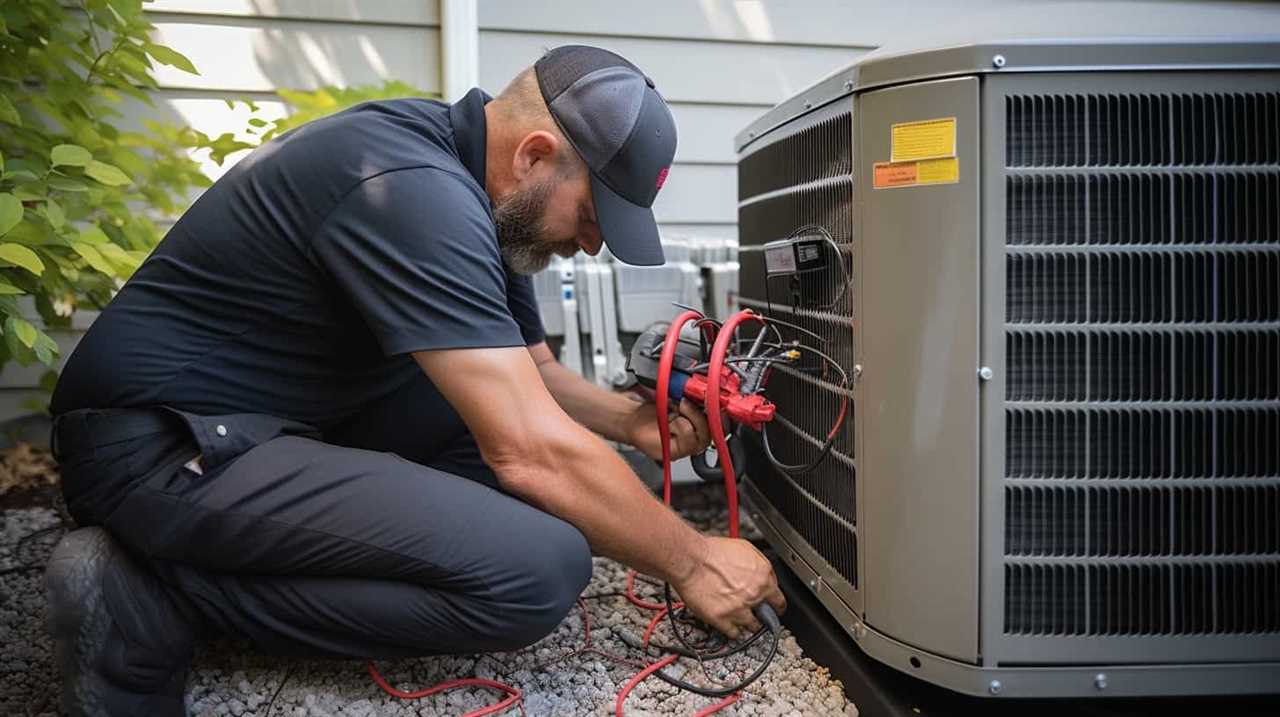
Let’s embrace these solutions and work towards a cleaner and greener planet.
-

 Residential and Commercial Applications2 weeks ago
Residential and Commercial Applications2 weeks agoBest Amana Heat Pump Reviews
-

 Thermal Energy Transfer2 weeks ago
Thermal Energy Transfer2 weeks agoBreakthroughs in Modern Heat Pump Systems: Thermal Energy Edition
-

 Residential and Commercial Applications2 weeks ago
Residential and Commercial Applications2 weeks agoBest Heat Pump
-

 Geothermal Heat Pumps3 months ago
Geothermal Heat Pumps3 months agoUpgrade Your Comfort with Our Efficient HVAC Systems
-

 Air Conditioning3 months ago
Air Conditioning3 months agoExploring Energy-Efficient Air Conditioning Heat Pumps
-

 Geothermal Heat Pumps3 months ago
Geothermal Heat Pumps3 months agoInnovative Geothermal Heat Pump Manufacturers Revolutionize Energy Efficiency
-

 Thermal Energy Transfer1 month ago
Thermal Energy Transfer1 month agoBoost Your Heat Pump Efficiency: Interactive Guide
-

 Residential and Commercial Applications2 weeks ago
Residential and Commercial Applications2 weeks agoBest Portable Heat Pump Heat & AC










